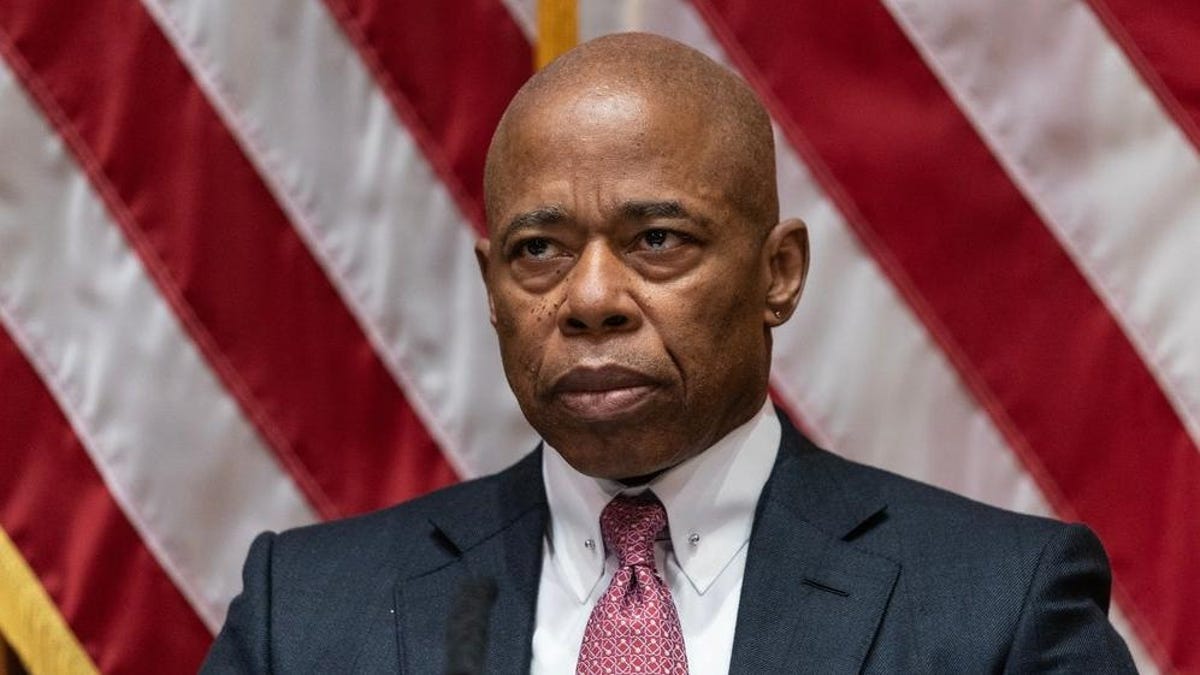
On Wednesday, New York City Mayor Eric Adams announced the Big Apple would be the first city to officially classify social media as a public health risk. Social media is an “environmental toxin,” Adams said in a speech, comparing the problem to guns and tobacco. The mayor then promptly went on—where else—social media to talk about it. But unlike guns and tobacco, widespread beliefs about social media’s mental health risks aren’t necessarily backed up by science, a fact you can read about in New York City’s own advisory about the subject.
“We won’t let Big Tech endanger our kids,” NYC Mayor Eric Adams said in his State of the City speech. Platforms like TikTok, YouTube, and Facebook are “fueling a mental health crisis by designing their platforms with addictive and dangerous features.”
Advertisement
For years, experts, advocates, and even employees at social media companies have raised alarms about the dangers of the platforms that dominate our culture. In 2021, for example, leaked internal documents from Facebook saw the company’s own staff calling for action over mental health issues among teen girls. Employees documented a “downward spiral” on Instagram that pushed children toward eating disorders, among a long list of other disasters. (You can read these documents yourself through Gizmodo’s Facebook Papers Project).
Advertisement
There’s an epidemic of mental health problems in the United States among children and adults alike, and New York City is no exception. “Rates of NYC high schoolers experiencing hopelessness increased by over 42% between 2011 and 2021, and rates of suicidal ideation increased by more than 34%,” New York’s social media health advisory says. “The most recent data in 2021, 38% of NYC high schoolers felt so sad or hopeless during the past year that they stopped engaging in their usual activities,” a problem that disproportionately affected young people identifying as Black, Latino, female, or LGBTQ+ in particular.
Advertisement
There’s an obvious correlation between the rise of social media and America’s mental health crisis. A 2023 survey found more than half of American teens spend almost five hours a day on social media, for example. But—stop me if you’ve heard this one before—correlation is not causation.
Advertisement
New York’s public health advisory follows a similar declaration from US Surgeon General Vivek Murthy in May 2023, which saw the nation’s top doctor warning that there are “ample indicators that social media can also have a profound risk of harm to the mental health and well-being of children and adolescents.” You might note the phrase “ample indicators” in that statement, however, which is worth a minute of consideration.
The truth about social media’s effect on our bodies and minds is complicated, as the thorniest issues often are. Make no mistake, social media apps like Facebook, Instagram, TikTok, YouTube, and X/Twitter have profound negative effects on our world. The platforms are responsible for spreading hate speech, turning conspiracy theories and misinformation into a full-blown societal crisis, fueling terrorism and drug cartels, and an endless and ever-growing list of other horrors. The companies behind these sites are well aware of these problems, and they promise, hand to god, that they feel awful about the whole thing and it’s going to get better soon if you just wait—though, if you’re worried about your health, you might not want to hold your breath.
Advertisement
Scroll down and you’ll find the comments section misinterpreting this as an apology for social media’s ills. That’s not the point; the point is we actually have no conclusive idea about social media’s effect on mental health, specifically, and that’s something New York and the US Government readily admit in their own warnings about the technology.
Buried in the Surgeon General’s warning about social media is a note that what we really need is “more research,” and there’s a great deal of evidence that social media has some positive effects on mental health. A recent study found that a social media detox did not improve mental health in an experiment that asked participants to stay offline. A 2022 Pew Research survey found that almost 59% of teenagers report that using social media makes them feel more accepted. A 2020 study from the Center for Health and Happiness at Harvard’s School of Public Health found positive associations between social media use and mental health and well-being. The list of studies like these from very serious, pointy-headed experts goes on and on.
Advertisement
But, according to the Surgeon General, we should pretend like there’s evidence that social media is bad for your mental health, even though there’s not. “While social media may have benefits for some children and adolescents,” the Surgeon General’s warning says, “At this time, we do not yet have enough evidence to determine if social media is sufficiently safe for children and adolescents.” You could say the exact opposite and it would be equally true: we do not have enough evidence to determine if social media is unsafe for children’s mental health, either. Our public health officials, it seems, are making their decisions based on vibes.
New York City and the Surgeon General are right to point out the potential risks of social media, and parents should be aware of them. Regulators may want to drag executives at big tech companies into the halls of justice and hold them accountable for the problems we know to be true. But should doctors join them before we truly understand what’s going on in the medical department?
Advertisement
Mayor Adams wrote—on social media—that “Just as past U.S. [Surgeons General] did with tobacco and guns, we’re treating social media like other public health hazards and ensuring that tech companies take responsibility.”
We know, for sure, that tobacco causes cancer. You shouldn’t smoke if you prefer to avoid painful and unnecessary death. The same cannot be said for social media.
Services Marketplace – Listings, Bookings & Reviews